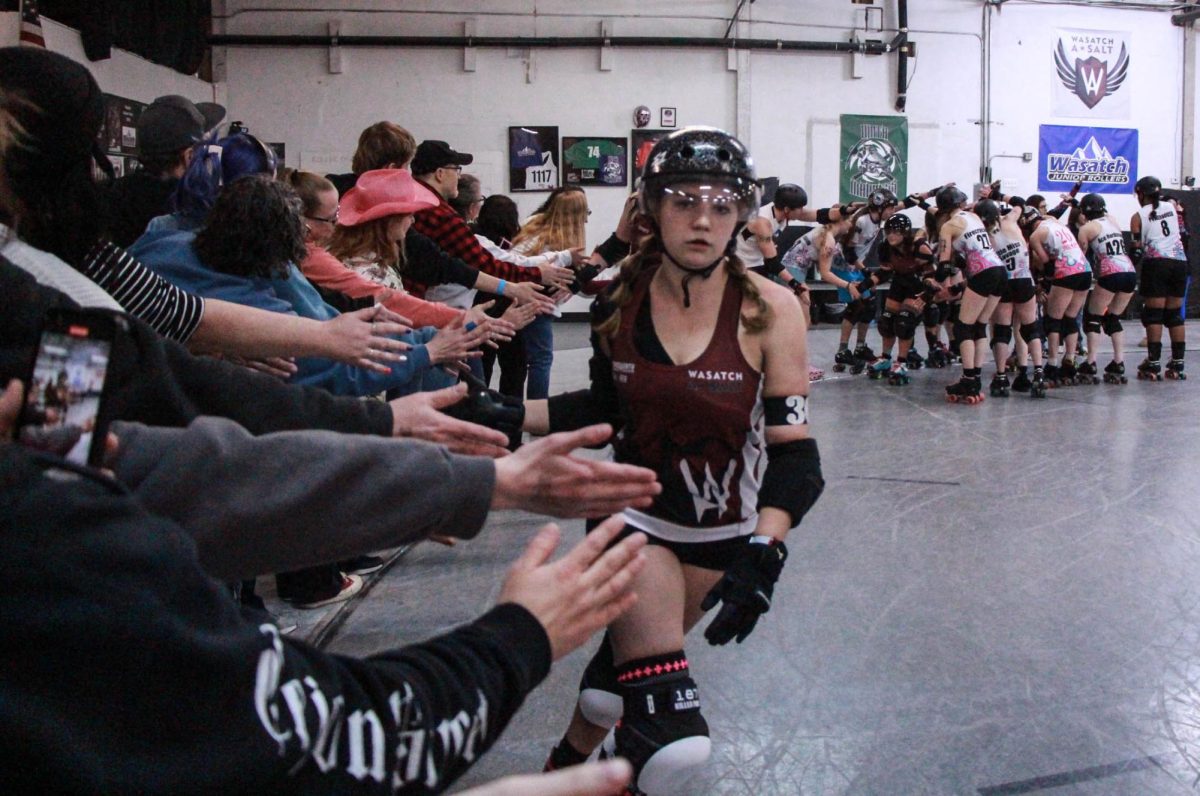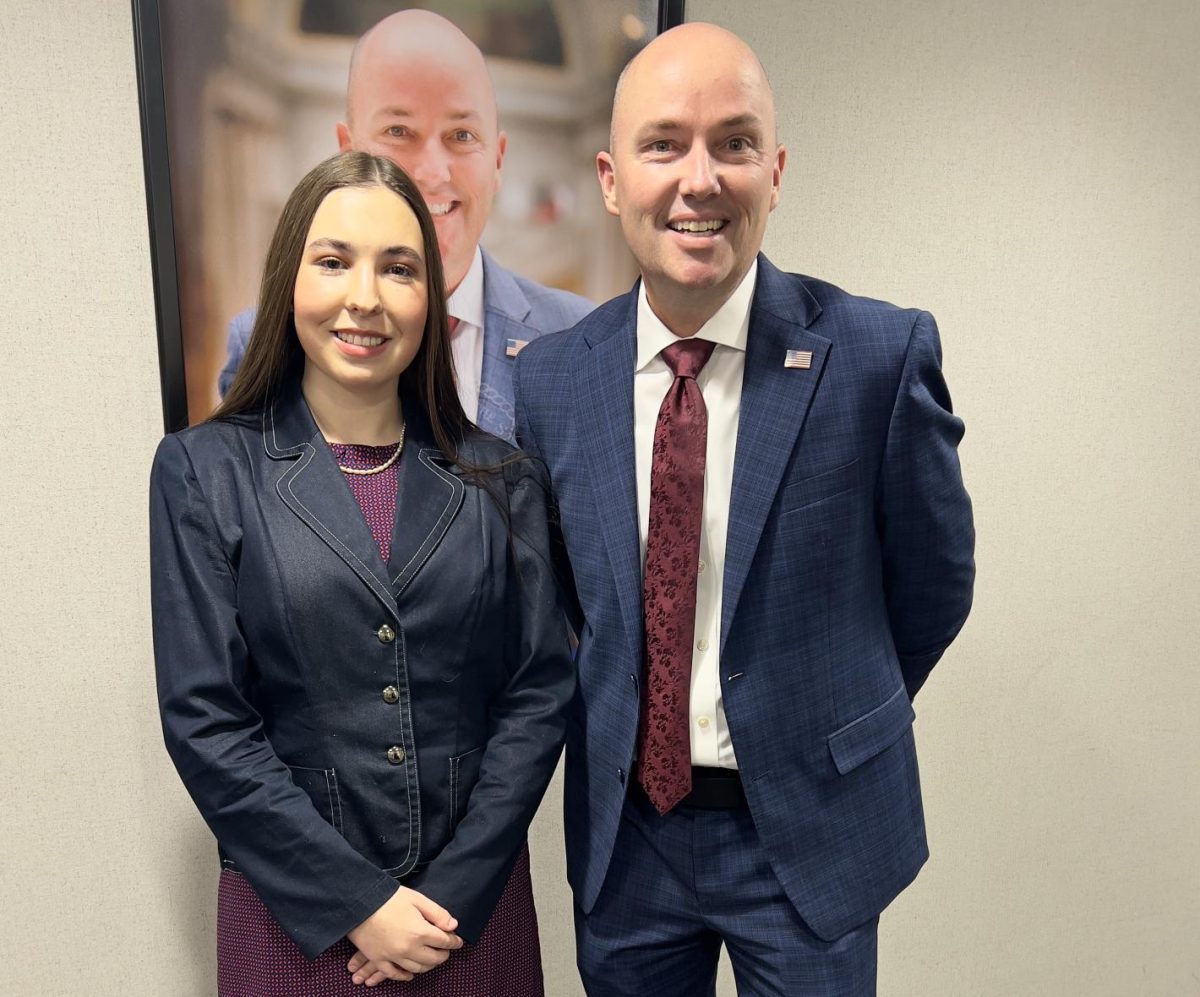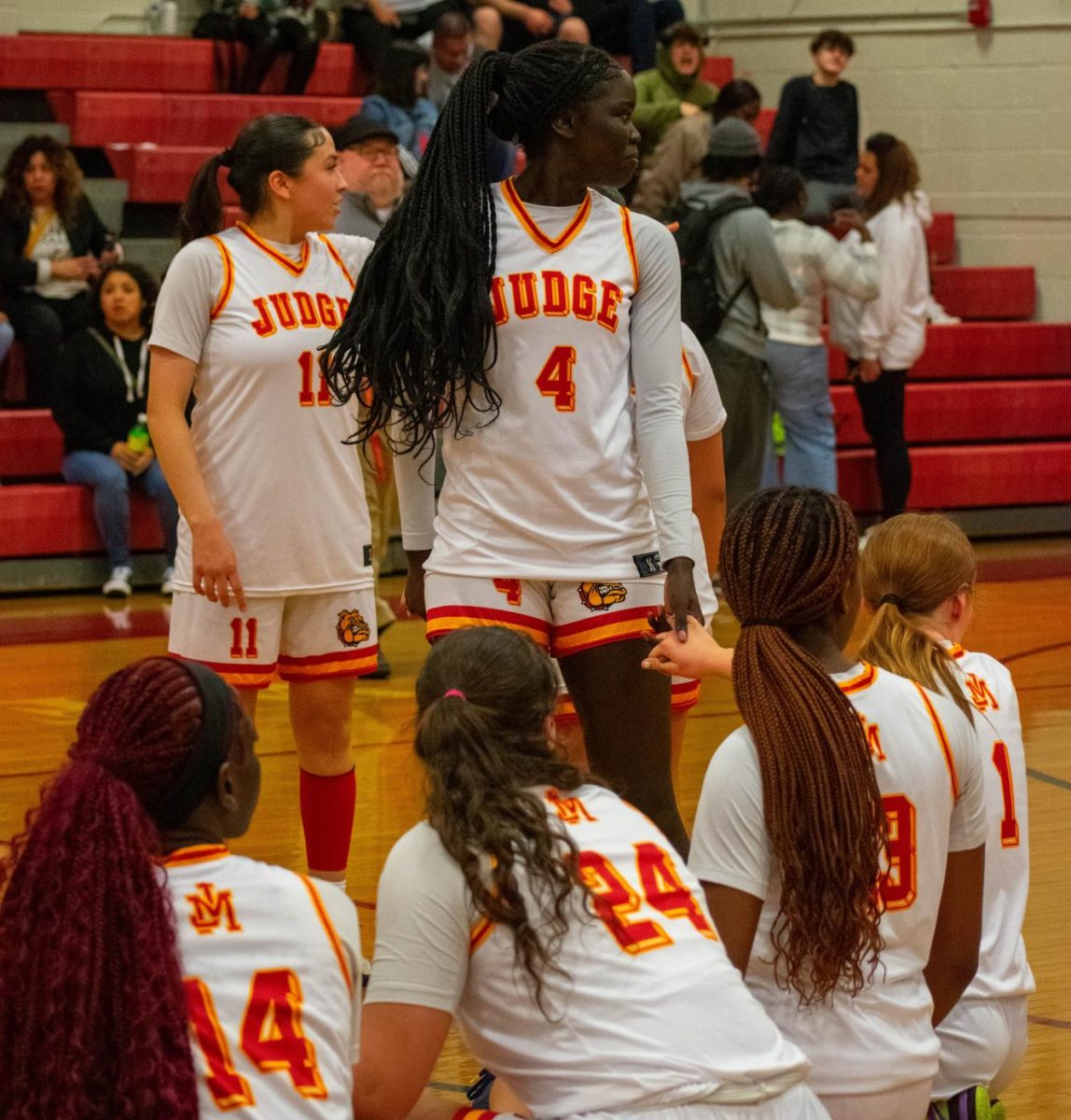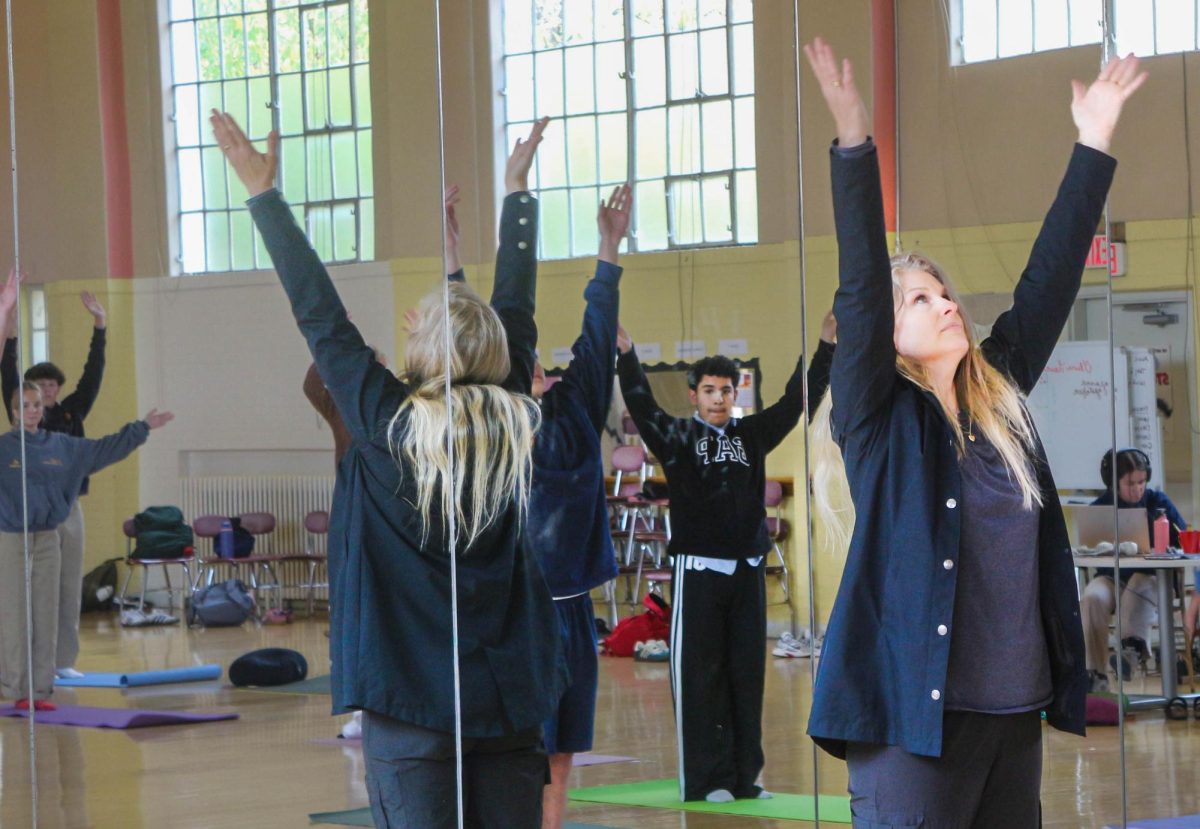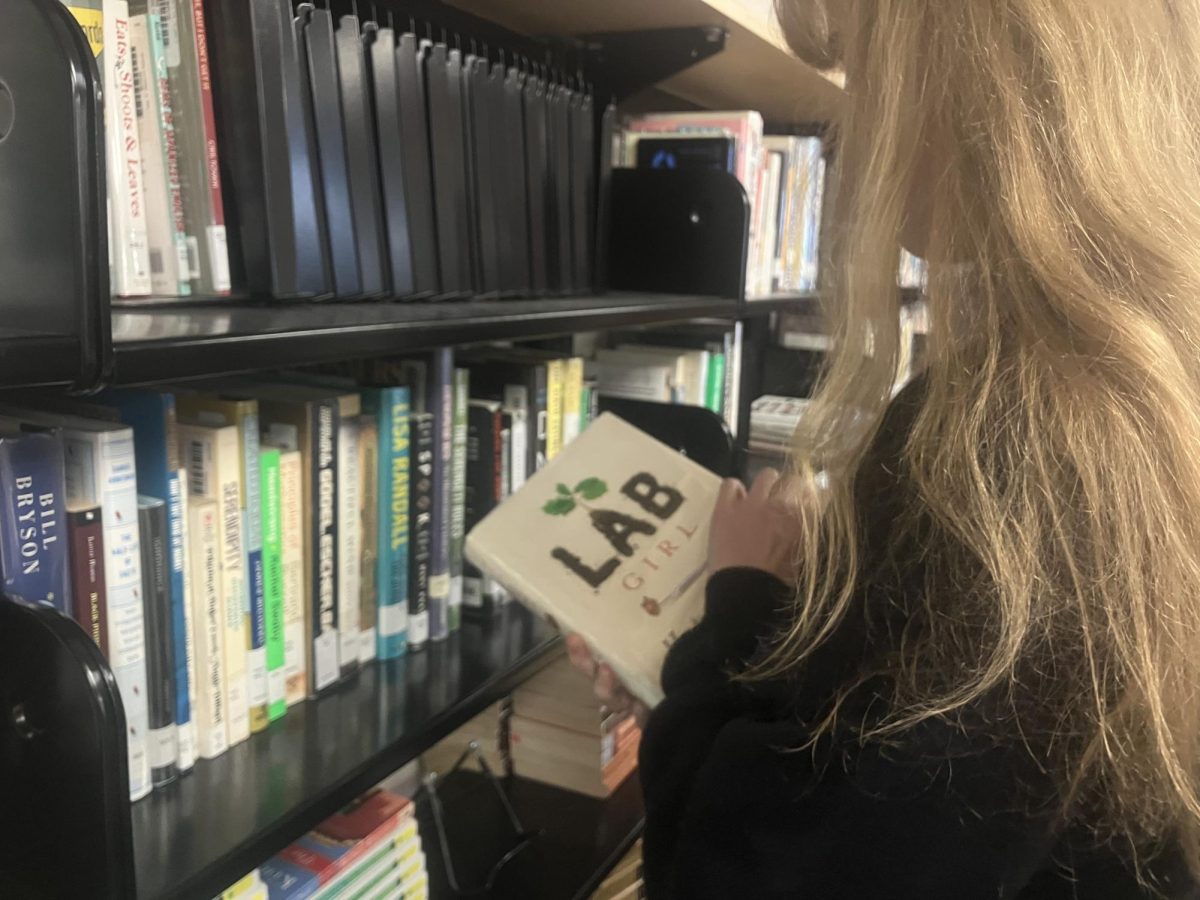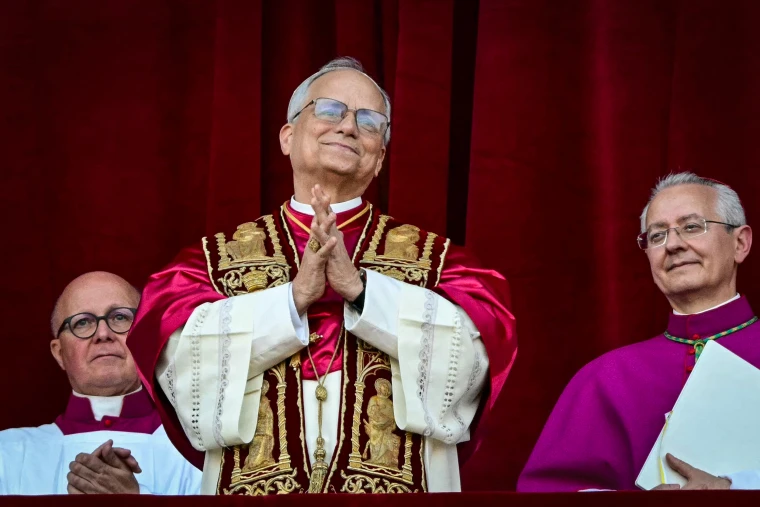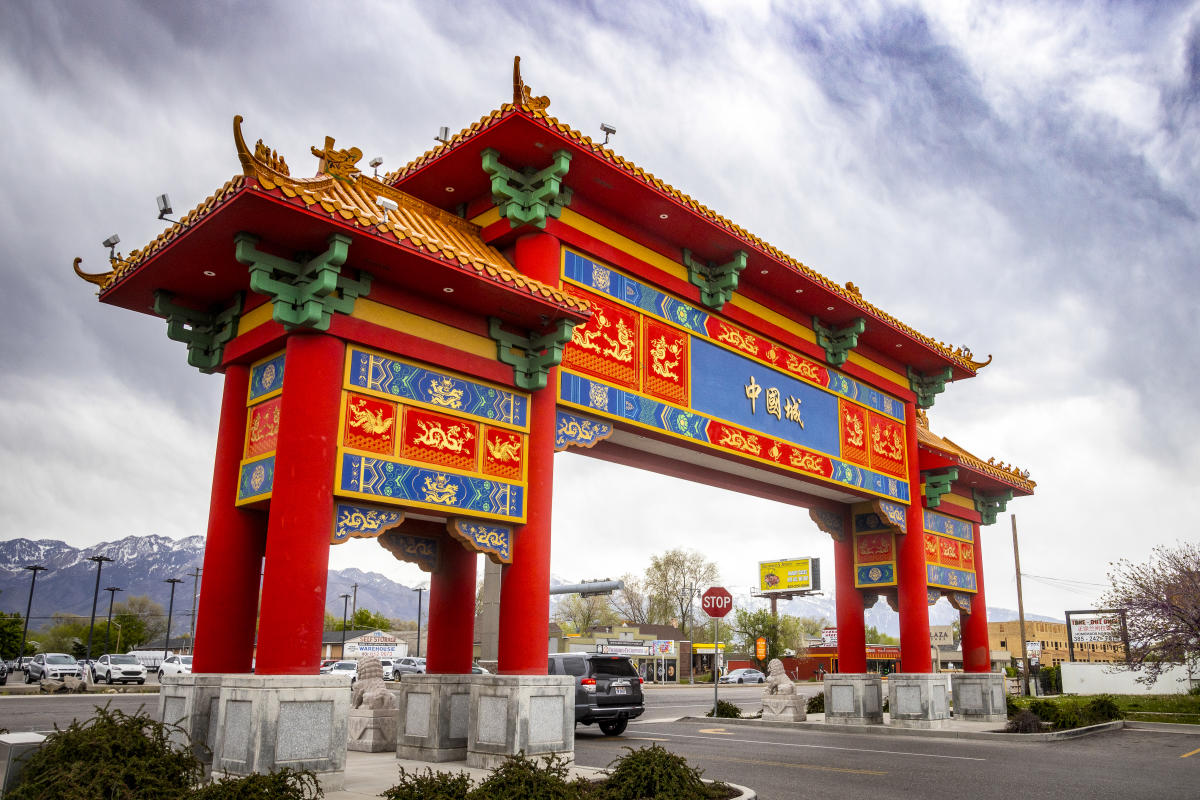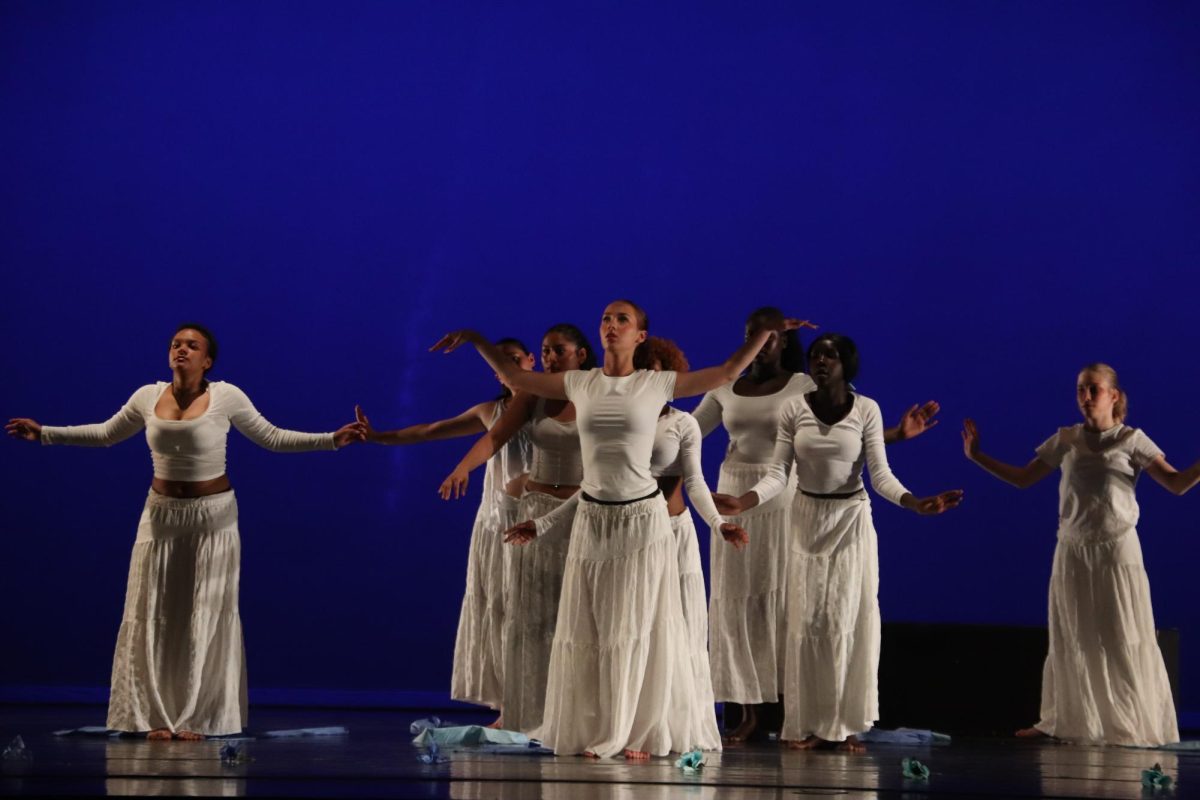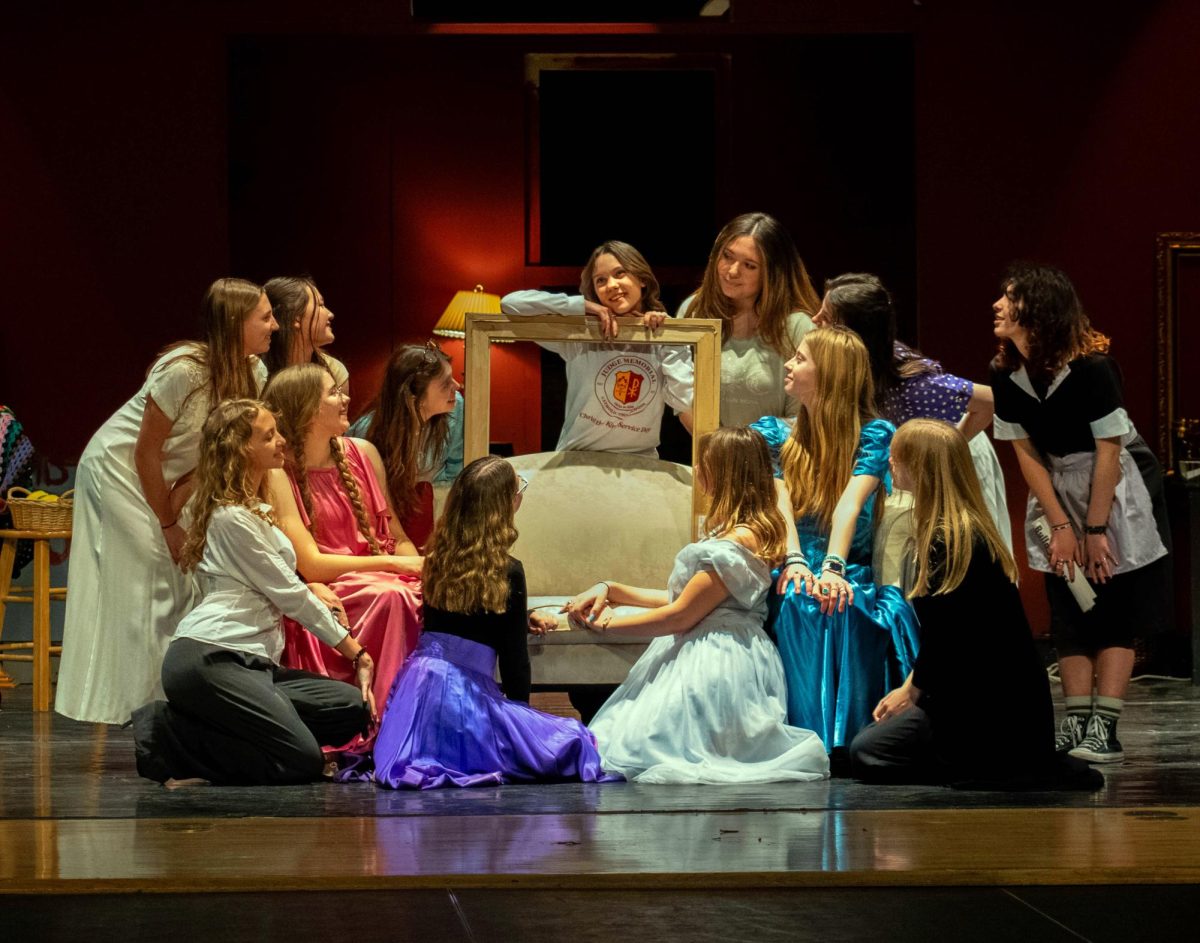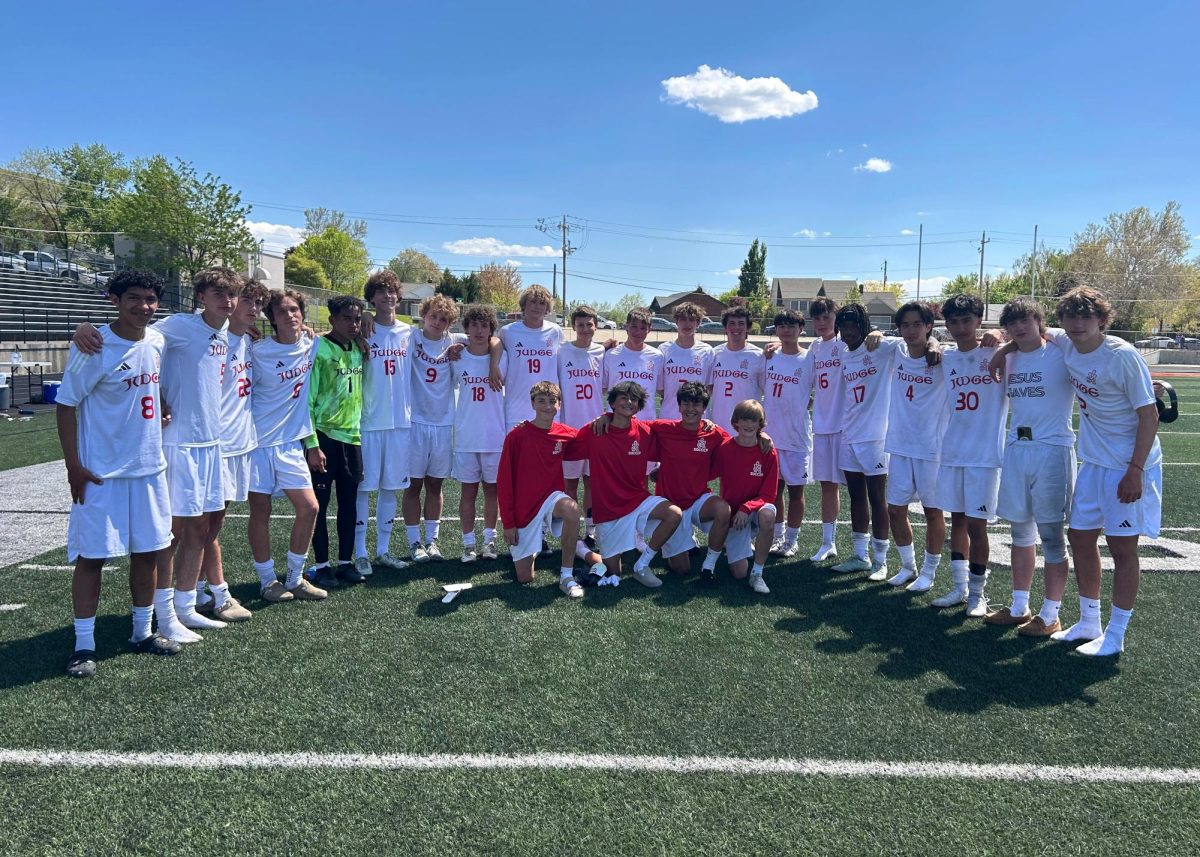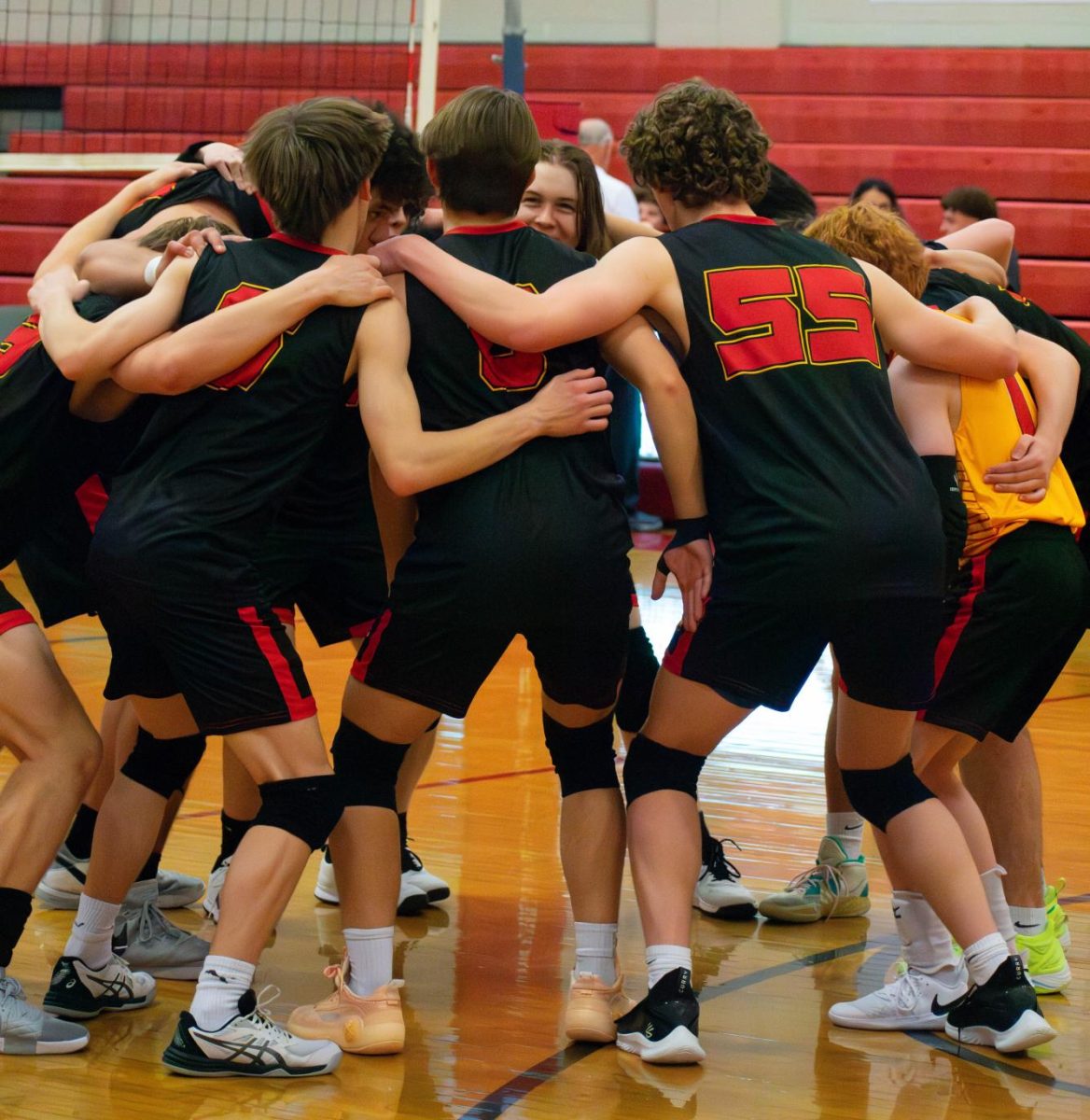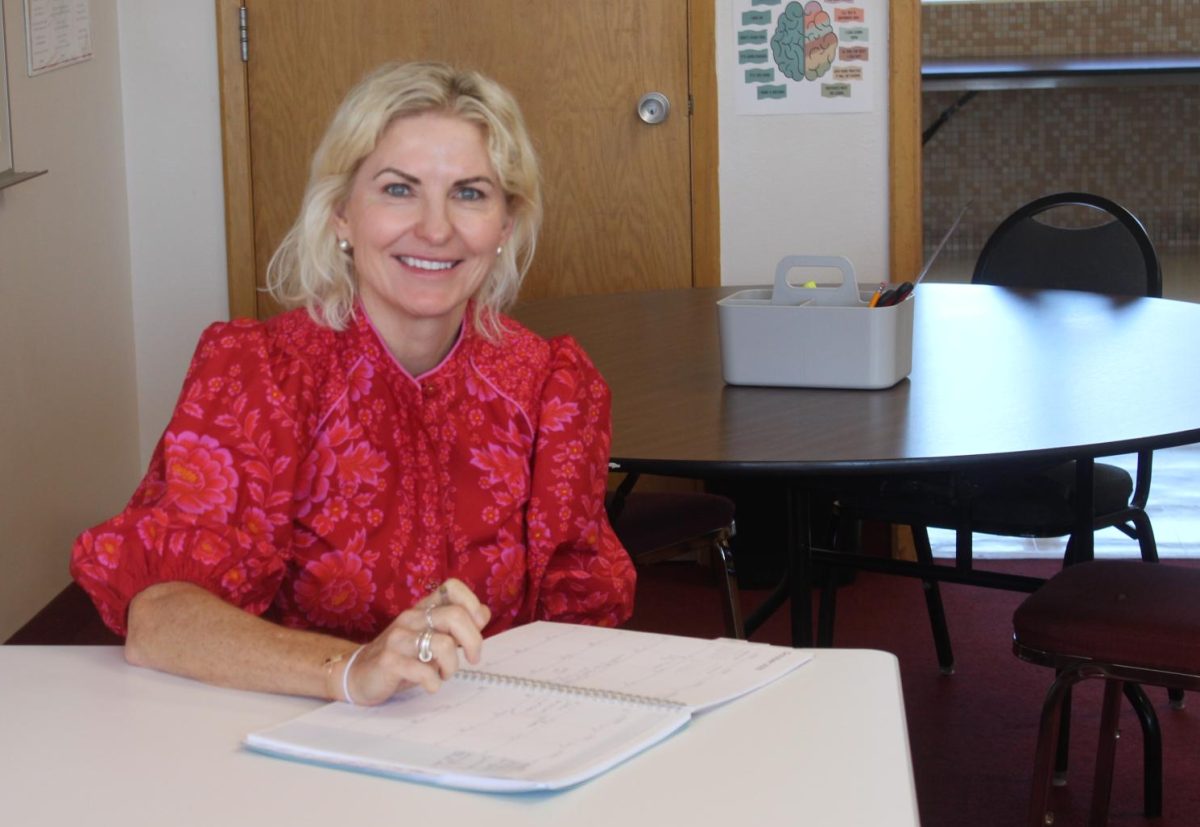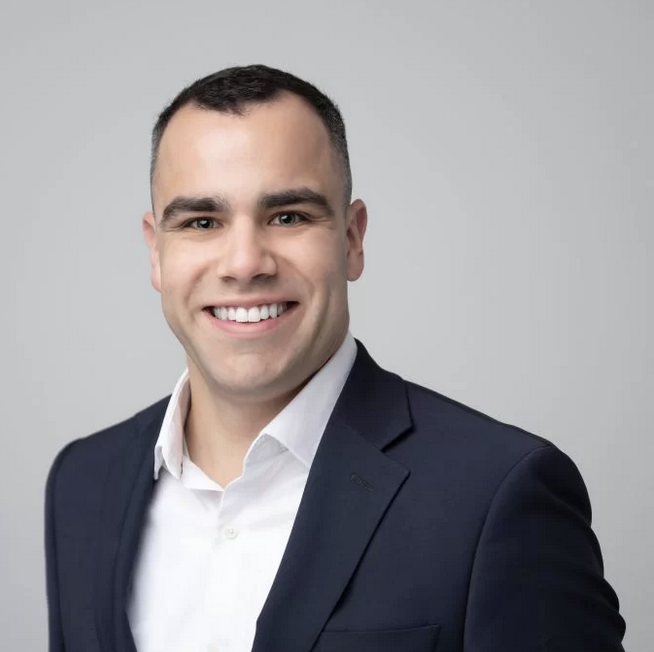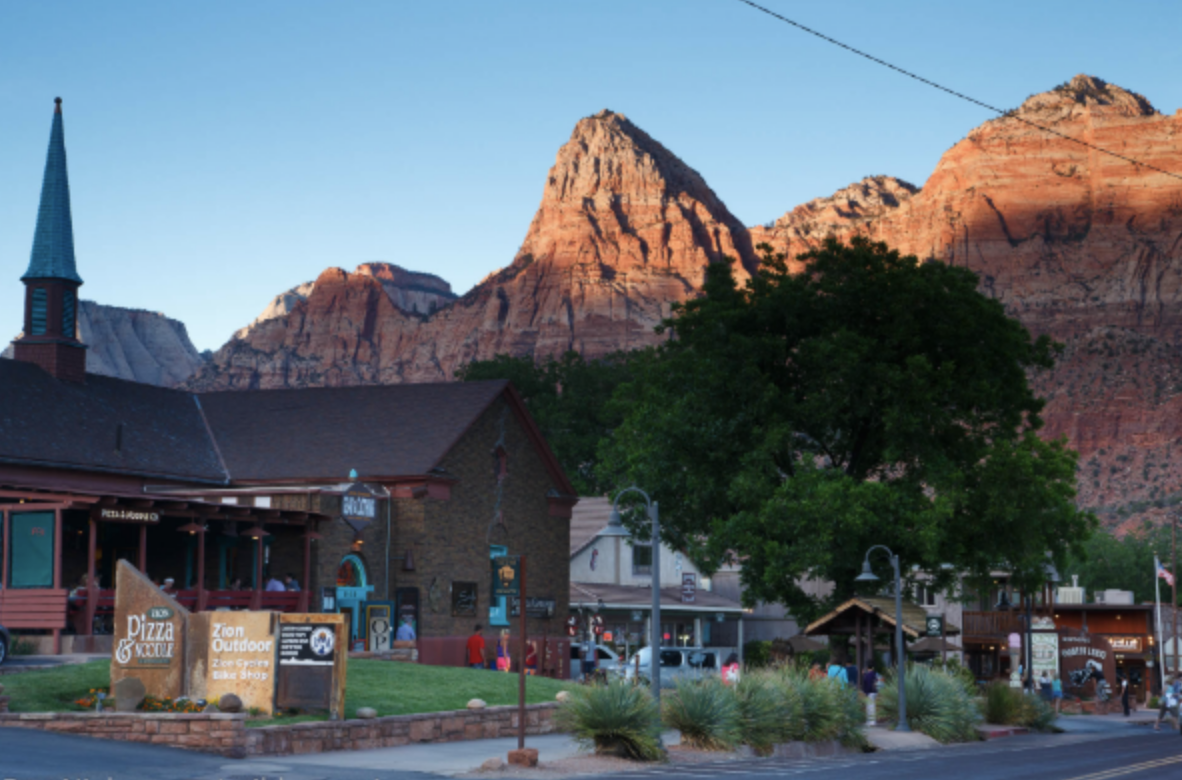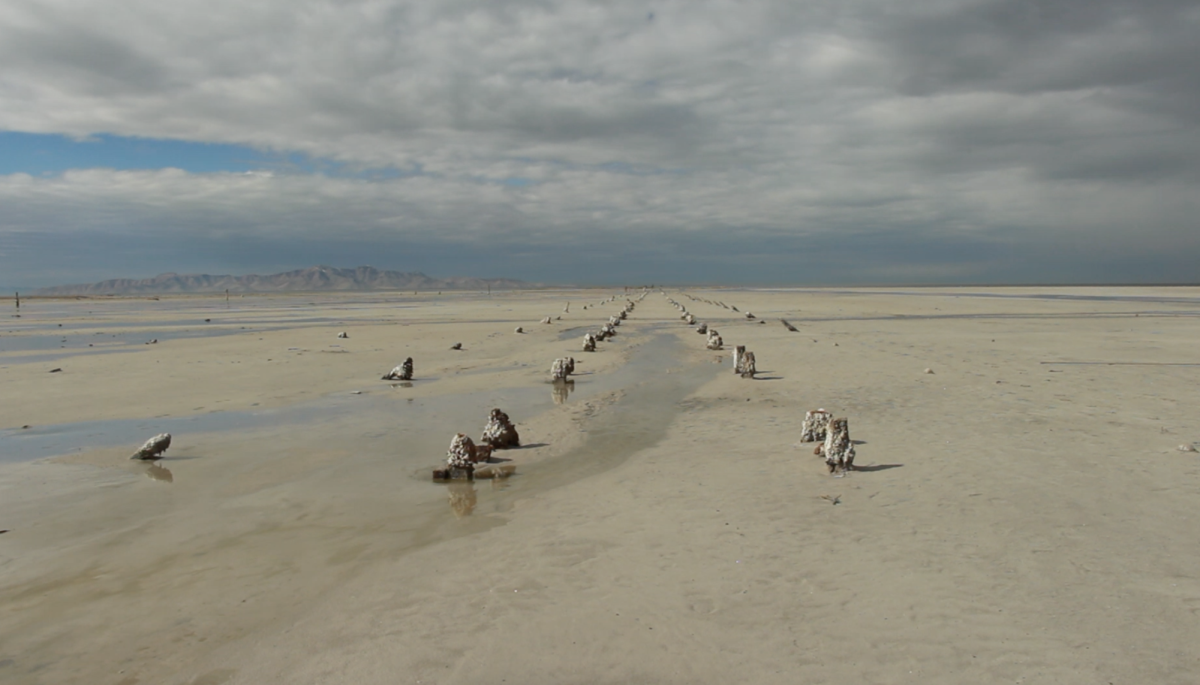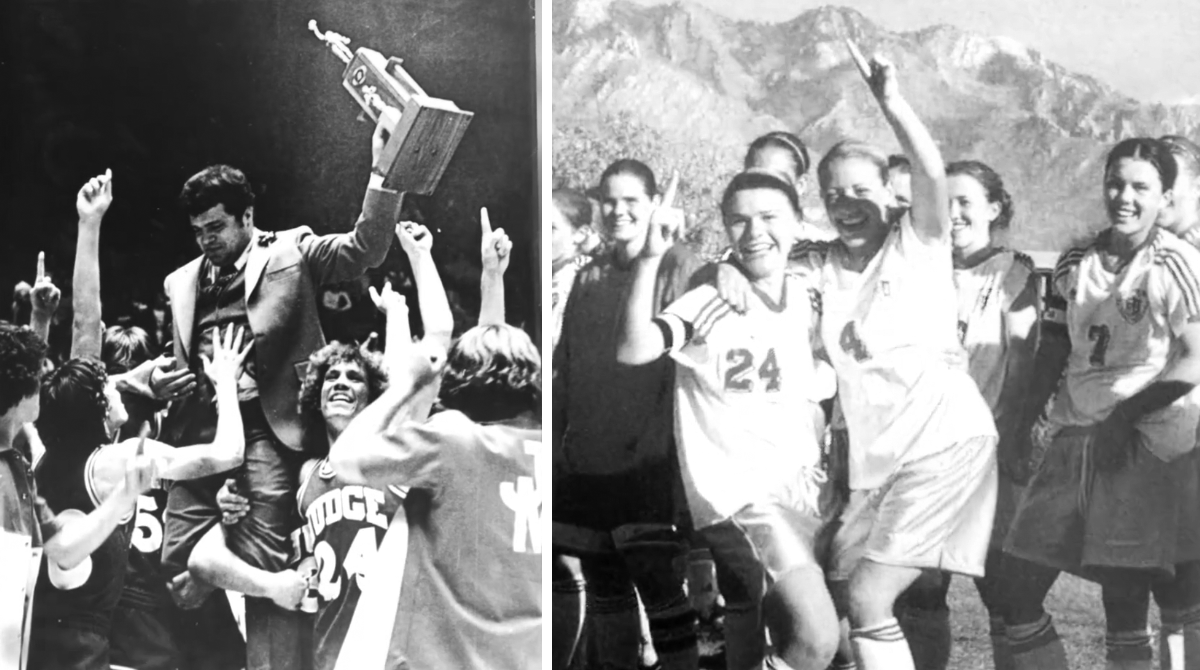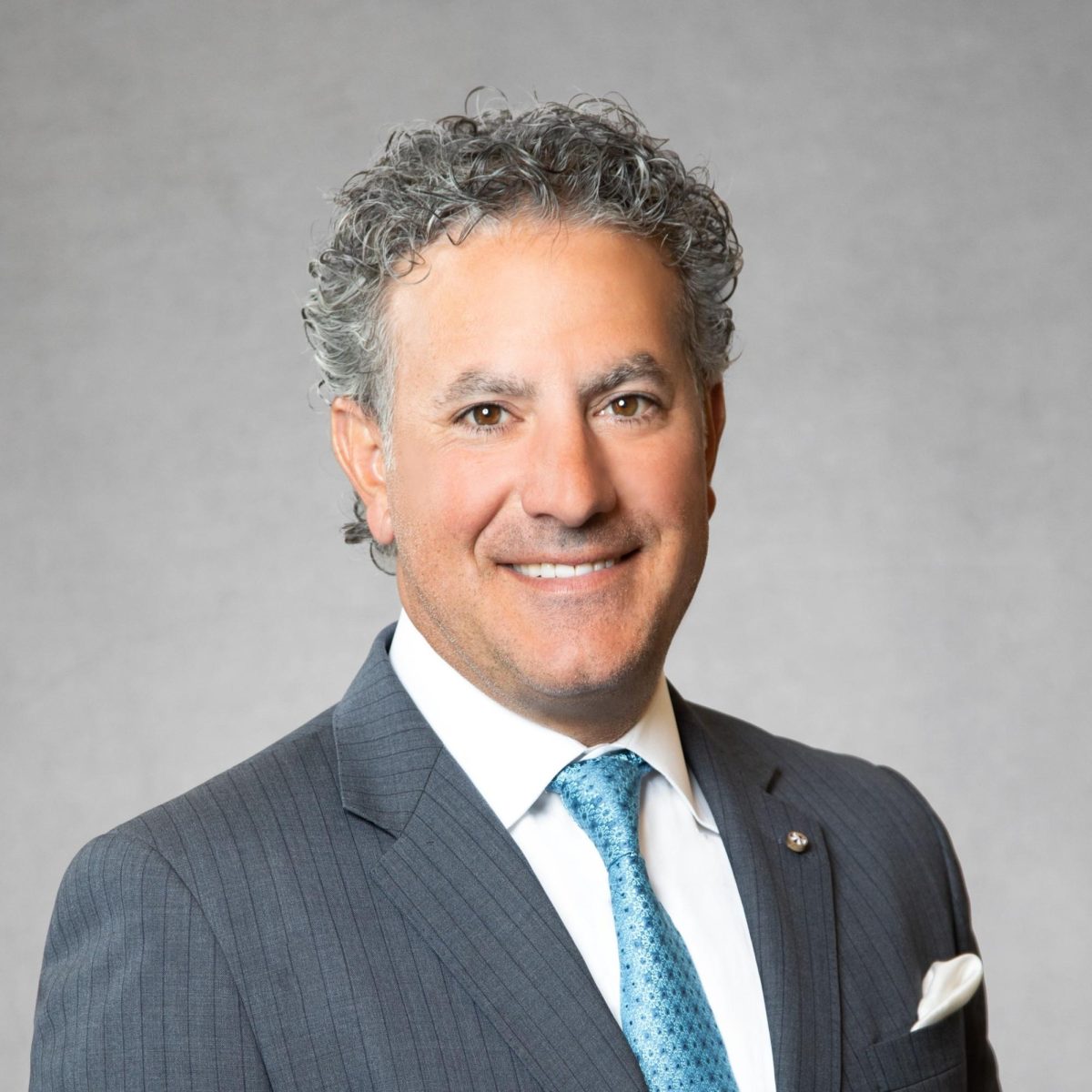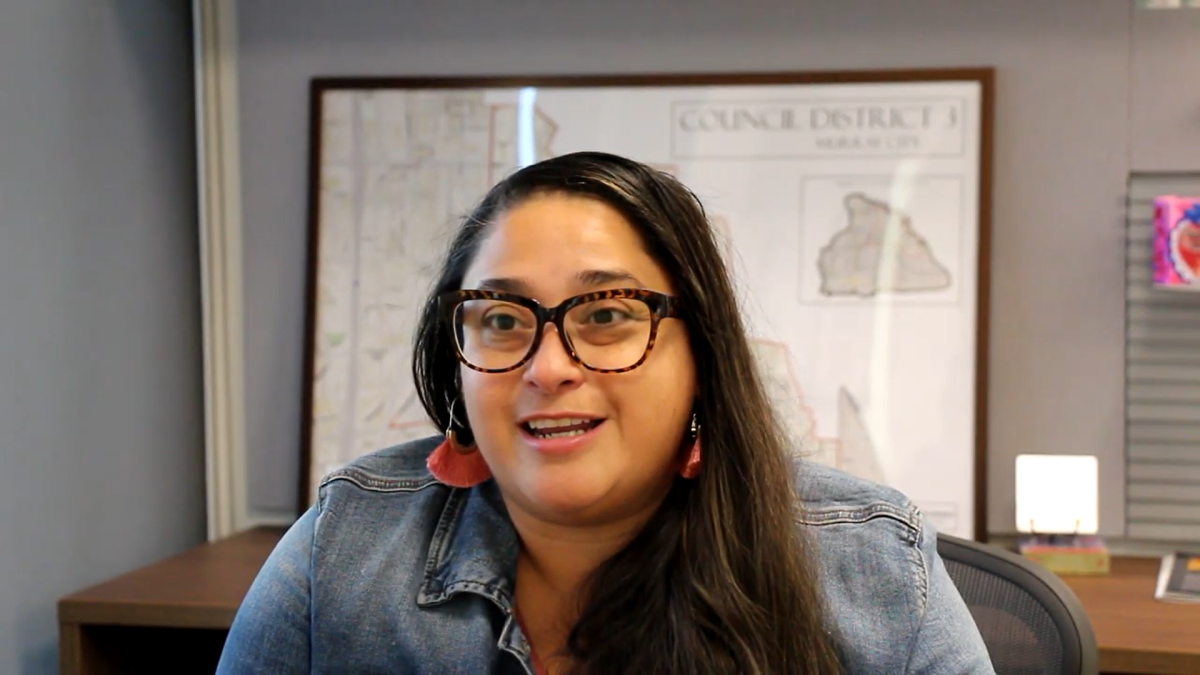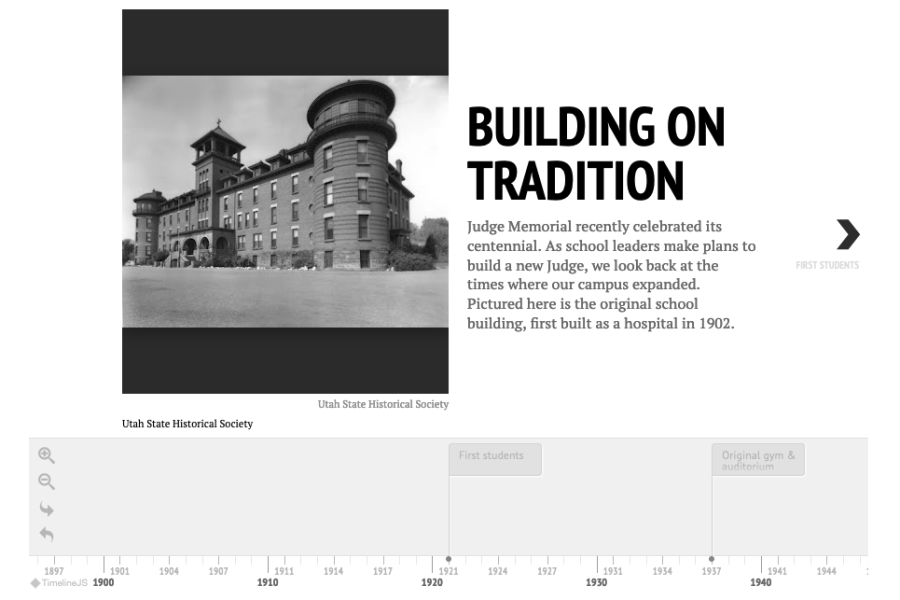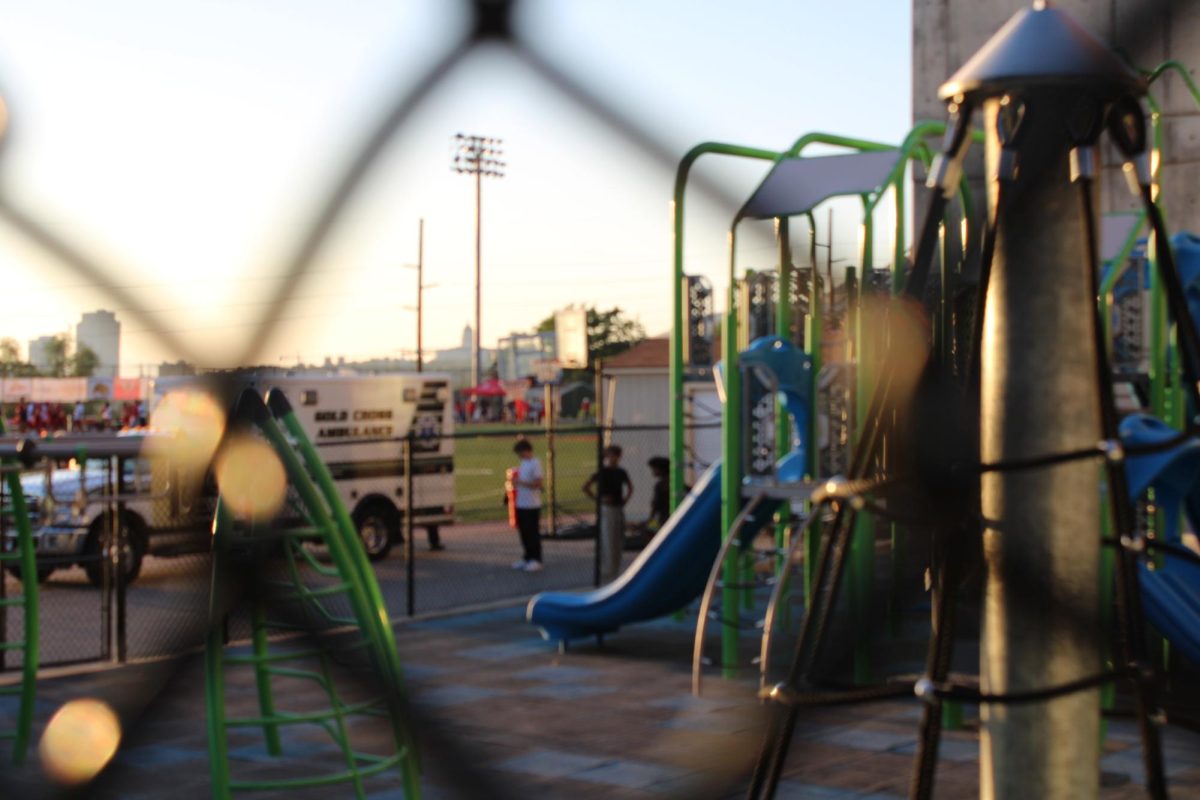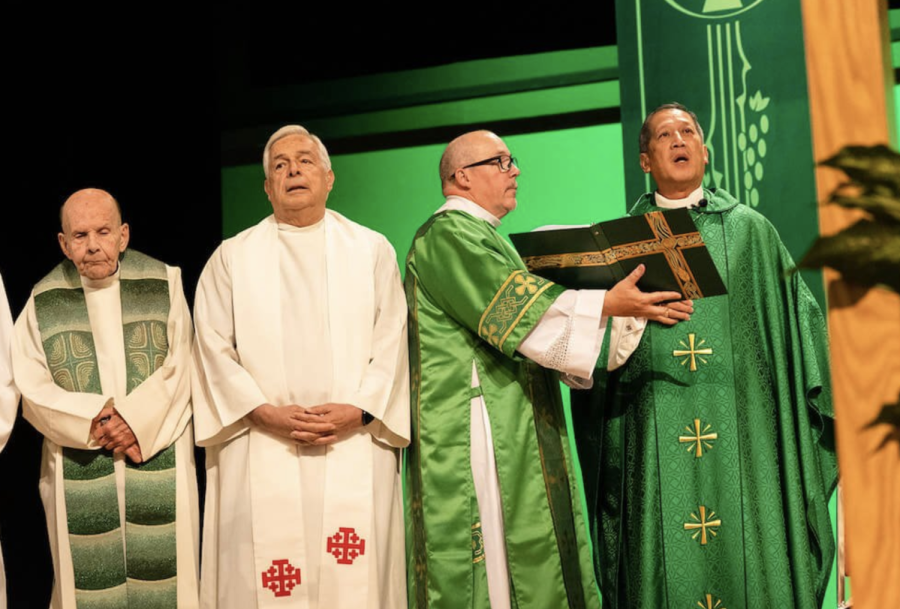Former students testify
The role of faith has been central to the school’s mission since it opened
Bishop Oscar Solis celebrates mass at September’s Centennial celebration. Msgr. Fitzgerald (far left) and Msgr. Mayo (second from left) are Judge graduates.
November 30, 2022
Principal Lambert talks a lot about the concept of Cura Personalis, which means “care for the whole person.”
“Cura Personalis means that we concentrate on our students’ intellectual, social, physical, and spiritual growth so that they can thrive as agents of change,” Lambert said.
One of the recurring themes in our interviews with the alumni was the powerful role that religious teachers had in their lives. Here are some of their memories.
“The priests and nuns taught us to value, to love, and to respect our family and friends.” – Jim Kirkeby, 1953
“Fr. McDougall was the author of “Six Bells Off Java.” He told the story how he, as a younger man, was a reporter for the Salt Lake Tribune and was in Shanghai prior to WWII. He told about being on a ship that was sunk in the Indian Ocean six bells off Java. While floating in the ocean, he promised to dedicate his life to God if he survived, and he honored that promise. He later wrote “By Eastern Windows.” That book continued his experiences telling how he was captured and lived in a concentration camp the duration of the war. These books weren’t on our required reading list but I believe most of us read them and we respected Fr. McDougall for his courage.” – Diane Carpluk, 1953
“Sister Irene could kick a football farther than anyone in the class. She was big on biology. We would dissect worms, and frogs in class and she kept snakes and spiders (at least one tarantula) that we found down in that swampy area that you now call your football field.” – Larry Williams, 1953
“I remember Sr. Claire Antoine, so warm, and so kind and caring. She knew I couldn’t afford a class ring, so she gave me a Judge pin that I could wear on my sweater. She also helped me get a job in the cafeteria. But she was firm and you didn’t mess around with her. Our generation was taught respect.” – Sally Hale, 1954
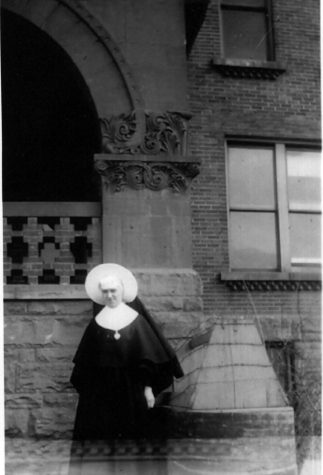
“My four years at Judge prepared me for my adventure through this lifetime in spiritual ways that were revealed each and every day since. I am deeply and profoundly grateful. My life has been a loving and joyous experience.” – Judith Clute, 1955
“My favorite teacher was the late Fr. Larry Spellen. Once when I got angry over my schedule, I quit Judge and transferred to South High School. That lasted one day. Fr. Larry came to my house, collected me, and took me back to Judge. The community was so close he was not going to let me get away.” – Doug Hunsaker, 1958
“Father Merrill was the chemistry teacher and a great scholar. He inspired me to continue on in science and later to become a medical technologist with a fantastic career. He also lived at the Guadalupe mission and helps Hispanics get jobs and financial aid. He started the La Morena and all the proceeds went to the Hispanic community. He left the priesthood but left huge footprints on all the good people he had assisted during those years.” – Marshall Spalding, 1963
“I had several great teachers. Sister Evelyn Joyce or ‘Sister E.J.’ was one of my favorites she was such a kind soul and really loved to teach.” – Allison LeDuc, 1988
“Fr. Norman was absolutely great. I got into a bad car accident my senior year and he came to the hospital to visit me.” – Jim Hickey, 1989
Msgr. Fitzgerald still challenges students
by Maria-Lorena Mejia
Msgr. J. Terrance Fitzgerald, former Judge principal and then vicar general of the Salt Lake diocese, graduated from Judge in 1954.
“I wanted to attend Judge because my Catholic faith was at the heart of my life. I knew I wanted to be a priest and so wanted to be in school where I could be around priests and sisters to gain the knowledge of religion, Latin, etc. that seminary college would require. I had great teachers who cared for each of us and inspired us to love learning.”
He says that Judge prepared him well.
“I had a fine knowledge of literature, writing composition, science and math,” he said. “All of us learned to discipline ourselves for study.
“I have fond memories of seeing the nuns in their old habits cheering at football games, and priests working around the campus, cutting the grass on the football field and painting school rooms.”
He offers advice for today’s Judge students: “Be people of honesty and integrity. Say what you mean, do what you commit yourself to, respect others, have concern for the world and community, and love learning. At the heart of a meaningful life is faith in God, appreciation for God’s gifts like family, sacraments, Scripture, a beautiful environment. Speak up for what you believe, embrace those who have no one else to stand up for them.
“Enrich yourself by reading the best of literature. Educate yourself about the world. Use the library. Read, write, discuss, challenge. Appreciate your family, for in life you will see that their love and care far outweighs their shortcomings. Be positive, always look for the rainbow. Do what you can to blow the dark clouds of discouragement and depression away.”
—
Msgr. Kenney worked through three decades
Msgr. James T. Kenny has a long history with Judge from 1945 to 1961, and then as superintendent of the diocese. Msgr. Kenny was the principal during the time when the new building was under construction. Kenny said that the classes were much simpler than the classes of today and that there were fewer extracurricular activities. One of the many achievements he made when he worked for Judge was making the very first yearbook in 1949, the Basilean, which means followers of Christ.
His job was not only to be the principal, he was also a teacher in the afternoons and taught everything but math and science. Msgr. Kenny was also the assistant football coach. Before his time, he said that judges would always lose their games by a lot. But the football team improved and finally won its first state championship in 1948.
One of the interesting things that Msgr. Kenny said that everybody in the school knew each other, since the student body was so small. The faculty and staff were paid very little and would at the most be paid $40 a month. Most of the teachers were nuns and priests. During his time as principal, the school lost nun teachers and he said that he wanted to have newly ordained priests as teachers. The Holy Cross sisters in the valley at the time had a high school and small college. The decision was made to make Judge an all-boys school so that the girls would go to St. Mary of the Wasatch.
He thought that this would help the sisters financially, but they lost their school and Judge became a co-ed school again in the early ’70s. (Msgr. Kenny lived at in St. Joseph’s Villa in Salt Lake at the time of this interview). He lived a great life and was admired by many people for his contributions to Judge Memorial.
—
Fr. Flegge recalled the ‘new’ Judge
Fr. William Flegge’s name came up a lot when we asked members of the graduating classes from the ‘60s who their most memorable teachers were.
He said that when Judge was an all-boys school, the boys were really rowdy and had a few problems with their social skills. He also said that the boys thought that they could get away with anything, especially if they sat in the back three rows of a room with three desks across and fifteen desks deep. He laughed and said, “But they always knew where to draw the line.”
When the new building was built, it was a great advantage. People had nicer desks, there were chalkboards, the school was air-conditioned/heated, and the students had bigger lockers. He said that the students gained a lot from the new school.
“They were able to learn more than before,” Fr. Flegge said. “The teachers benefited from it because we had more room to teach, and we could see all the students easier.”

